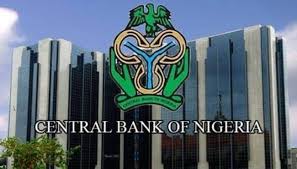The Central Bank of Nigeria (CBN) said that banks nationwide will no longer charge processing fees for large cash transactions.
The acting director of banking supervision at CBN, Dr Adetona S. Adedeji, told all banks, other financial institutions, and non-bank financial institutions in a circular that fees previously charged on cash payments over specific amounts would no longer be applied.
There is a 2% processing fee for cash deposits over N500,000 for individuals and a 3% processing fee for business deposits over N3,000,000, according to the “Guide to Charges by Banks, Other Financial Institutions, and Non-Bank Financial Institutions” released on December 20, 2019. It was mentioned in the memo.
The Central Bank of Nigeria is stopping the 2% and 3% handling fees that were being charged on all cash deposits above these amounts right away.
As of right now, the CBN has stopped charging these processing fees. It means that banks can accept cash payments from anyone without charging any fees. It will stay in place until April 30, 2024.
The immediate effects of the order could be suitable for people or businesses that deposit large amounts of cash, which could lead to more cash coming into the banking system. However, the long-term effects of this order on different parts of the Nigerian economy are significant to consider.
Read also: Nigeria’s Central Bank (CBN) postpones rate-setting meeting as inflation persists
Implications of the recent CBN order
The Central Bank of Nigeria’s ban on processing fees on large cash deposits until April 2024 may affect numerous places. First and foremost, this ruling may affect banks, allowing Nigerians to use ATMs.
Nigerians are angry about the scarcity of naira notes at public ATMs. The Central Bank of Nigeria says the economy has enough cash. Due to financial shortages, some experts believe this is an attempt to solicit additional cash deposits from Nigerians.
Without processing fees, banks might get more cash. Liquidity, monetary policy, and inflation may be affected. Institutions that deposit significant amounts may reduce reserve cash. It might raise M1, making banks more liquid. This prevents holiday cash flow issues.
Cash-based enterprises may deposit more cash if fees are removed. The following may affect spending and payment habits. If firms only allowed significant cash or bank transactions in the past to minimize expenses, this may happen.
Cash-intensive businesses can save money by cutting deal costs. It could also prompt a reassessment of Nigerian banks’ cash management and monetary policy laws.
CBN announces DMBs who distort images, data will pay penalties
In briefly
With empty ATMs and insufficient cash to support daily transactions, Nigerians have been experiencing an uprising that the directive would help end. As a result, demand has slowed down during the holiday season.
When the restriction of paying extra fees for significant deposits is taken away, it will also affect businesses. The data might lead to more money entering the country, giving its currency the power it needs in the foreign exchange market.




